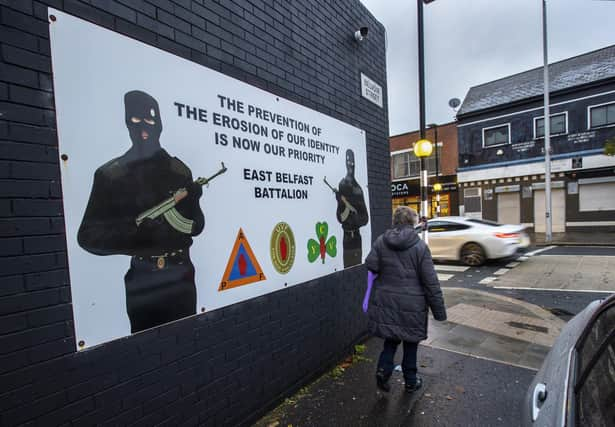Liam Kennedy: Shockingly good news – they don’t shoot children anymore


This might seem like a rather puzzling headline for visitors from abroad, or another planet. Is it possible that shooting children was a normal part of life in any democratic society anywhere?
Well, yes. Northern Ireland was such a place apart. Paramilitary gangs meted out ‘rough justice’, including shootings to the ankles, legs or arms of children in working-class communities in the North. This went on for decades.
Advertisement
Hide AdAdvertisement
Hide AdThese attacks have stopped. Not that loyalist and republican gangs – those residues of the IRA, INLA, UDA and the UVF – have gone away. Armed criminal gangs are still with us.
But it is the case that no loyalist gang has subjected a child to a so-called ‘punishment’ shooting so far this year. Indeed the last such shooting was back in 2013. Criminal gangs on the nationalist side, that is the various reincarnations of the IRA, delayed until 2018 to follow suit.
Then there are the assaults by gangs of masked men. These are the vigilante-style beatings with iron bars, cudgels or other improvised weapons. Here the picture is less favourable. Still, we have to go back several years for the last recorded vigilante-style beating of a child. On the loyalist side that was in 2020 and a year earlier in the case of republicans.
Admittedly, the likelihood is that ‘batterings’, as some like to term them, are under-recorded. Only the more severe vigilante attacks are picked up and many victims, driven by fear, are reluctant to cooperate with the police and admit what had really happened. To go public would simply invite a further attack. Human rights groups in Northern Ireland, who might be expected to be supportive, have shown little interest down the years.
Advertisement
Hide AdAdvertisement
Hide AdThese qualifications aside, it seems clear there has been a definite swing away from attacks on children by criminal armed groups. It was not always so. Child victims of paramilitary-style shootings were first recorded as a separate category only in 1990, with children defined as those aged 17 years or younger. Since 1990, there have been 175 cases of shooting children and 360 cases of paramilitary-style assaults. The physical damage and psychological trauma inflicted on generations of children hardly bears thinking about.
Times have changed, perhaps as more traditional conceptions of humanity have gained or regained ground lost during the Troubles. Youth workers, community workers, peace activists, and outstanding clergymen like Fr Martin Magill and the Reverend Steve Stockman have helped turn the tide of communal opinion against acceptance of human rights abuses on their doorsteps. The Paramilitary Crime Task Force, linking the police to other agencies, has been both innovative and effective in weakening the different armed criminal gangs.
The larger picture in relation to paramilitary activity in Northern Ireland is still grisly. But if we are to look for a silver lining, it is that the trend in paramilitary-style attacks, not only against children but against adults as well, is in a downward direction.
That, regrettably, is of little consolation to those still being terrorised by criminal gangs who wrap themselves in the Tricolour or the Union Jack. It is also of little consolation to the thousands who have suffered from vigilante attacks over the years.
Advertisement
Hide AdAdvertisement
Hide AdIn relation to the youngest and most vulnerable victims – the terrorised children of the Troubles – is it not time there was a major public inquiry into abuses by vigilante groups, thereby giving victims the opportunity to speak, often for the first time, and have their need for justice recognised?
We have had official inquiries into the physical and sexual abuse of children in institutions in the Republic of Ireland and in Northern Ireland. The Independent Inquiry into Child Sexual Abuse in England & Wales has just concluded. The failure so far to hold a parallel inquiry into children abused and mutilated by armed groups in Northern Ireland is now the real anomaly.
l Liam Kennedy is Professor of History at Queen’s University Belfast. He is a founder member of Children of the Troubles, which campaigns against attacks on young people by armed groups. He also produced the first report on paramilitary attacks on children 21 years ago, under the title They Shoot Children, Don’t They? (2001).